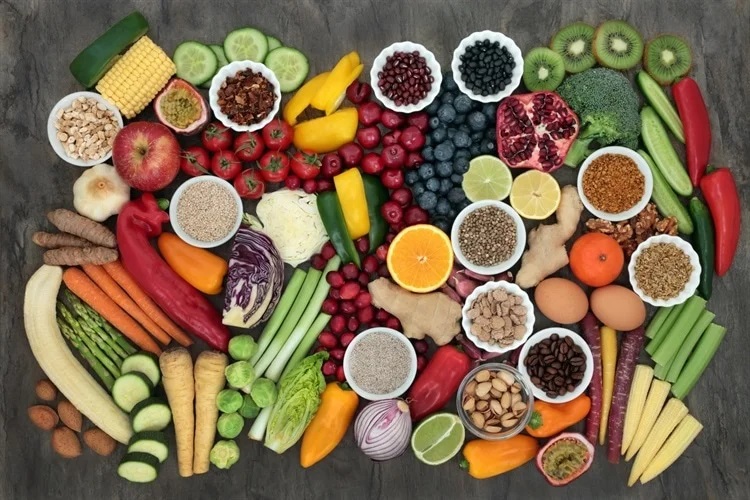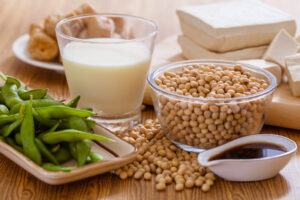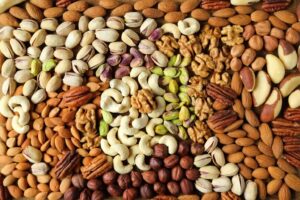Role of Dietary Foods in Dyslipidemia

Dietary Factors that Reduce LDL Cholesterol
Vegetables, fruits, grains, and legumes
- Most foods from plant sources are extremely low in saturated fat and contain no cholesterol. In addition, beans and other legumes, oats, barley, and many fruits and vegetables are rich in soluble fiber.
- This reduces cholesterol concentrations through fecal bile excretion, reducing insulin-mediated hepatic cholesterol synthesis, and inhibiting cholesterol synthesis by fermentation products of soluble fiber.

Soy products
- Soy products are often used to displace meat, dairy, or eggs from the diet and, in so doing, reduce the intake of saturated fat and cholesterol.
- Soy isoflavones also have inhibitory effects on cholesterol synthesis, and the fiber content of soy foods promotes cholesterol excretion.
Plant sterols and stanols.
- Food sources of plant sterols include vegetable oils, nuts, seeds, and grains, as well as certain margarines
- Although current plant sterol consumption ranges from 160 mg/d to 400 mg/d, it may have been as high as 1,000 mg/d earlier in human history.
- Individuals adopting plant-based diets can easily double their intake.

Nuts
- Almonds, peanuts, pecans, and walnuts are high in fat, although their fat is typically much lower in saturated fat compared with dairy products or meats.
- Moreover, nuts may have hypolipidemic effects through their fiber or plant sterol content. A dose-response meta-analysis concluded that for every daily 1-ounce serving of nuts, total and LDL cholesterol are lowered by roughly 5%.
- Because of their fat content, however, nuts can impede weight loss efforts if not compensated for by reducing calories from other sources.

Vegetable oils.
- Some authorities recommend replacing fats that contain saturated or trans fatty acids with those richer in monounsaturated and polyunsaturated fats. In omnivorous populations, replacing saturated fat with unsaturated fat has been shown to reduce LDL significantly.
- It is imperative to bear in mind that all oils are mixtures containing varying amounts of saturated fat. For example, olive oil is approximately 13% saturated fat.
- In addition, all fats are energy-dense (9 kcals per gram) and can promote weight gain. Studies of heart disease reversal have therefore avoided the use of added oils.
